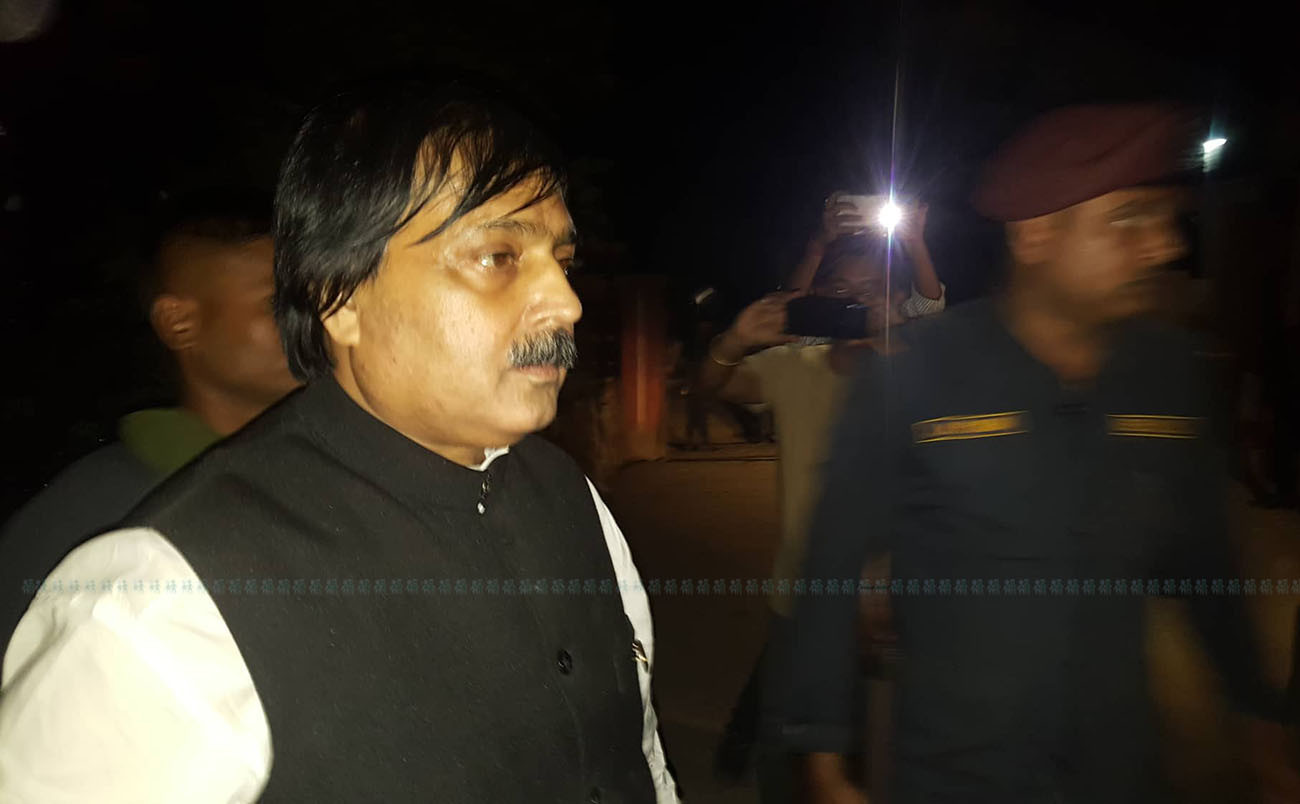The Rautahat District Court has slapped life sentence on Nepali Congress (NC) leader Mohammad Aftab Alam over the Rautahat blast case.
The bench of Judge Matrika Prasad Acharya has slapped life sentence on Alam and three others in the case, according to Registrar at the court Uddhav Dhodhari. The other three to get life sentence are Alam’s younger brother Mohammad Mahatab Alam, Sheikh Sarad and Badri Sahani.
They will be jailed for 20 years for life sentence as per the old General Code.
Mukti Sah, who was also charged in the case, however has been acquitted. The court has decided to keep the fate of six others charged in the case on hold.
Background of the case
Two persons were killed and over a dozen injured in a bomb explosion at Pharhadawa of Rautahat on April 9, 2008 before the first Constituent Assembly (CA) election. Most of the injured persons were Indians and all of them suddenly disappeared a few days after the incident.
Families of two of the missing Nepali citizens complained with the police some time later claiming that the explosion occurred while making bombs to help Alam win the election and Alam burned 11 injured persons in the furnace of a nearby brick factory alive to cover up the incident.
Police sat on the complaint filed by Sheikh Ruksana Khatun and Shree Narayan Singh, and Alam won the CA election.
Police later secretly investigated the case and found that Alam had hired Indians from across the border to make bombs to capture polling stations, and the villagers corroborated the claims of complainants.
Alam went to the Rautahat Police on June 23, 2008 after being summoned and the police prepared a case against Alam and his five cadres. But the case was never filed after the Office of the Attorney General instructed the District Attorney's Office to that regard on July 14, 2008.
Khatun and Singh moved the Supreme Court (SC) against the decision of District Attorney's Office and Alam, even as Alam became labor and transportation minister in the Madhav Kumar Nepal government in 2009.
A joint bench of the then SC justices Sushila Karki and Bharat Bahadur Karki hearing the petition filed by Khatun and Singh ordered arrest of the defendants and investigation but the order was not executed.
"Some evidence of the incident seem to exist on the basis of the complaints identifying the perpetrators; recovery of sweater, high-neck, black socks, and black shoes of Osi Akhtar Miya at the site of incident; statement of Sarjul Miya; and field reports of the National Human Rights Commission (NHRC), Nepal Bar Association (NBA), and other human rights organization," the Karki duo ruled.
Khatun and Singh then complained with the Judgement Execution Directorate which again ordered Alam's arrest. But powerful Alam, who could even get officers he wanted deployed as Rautahat Police chief, was again not arrested.
Khatun was murdered in the meantime and other victims of the incident also could not speak after that.
A SC order in June 2019 led to arrest of Alam October 13, 2019.
A joint bench of Justices Anil Sinha and Kumar Regmi had ordered the Office of Attorney General to submit a report about progress in investigation of the incident and current situation within 30 days.
Advocate Pushpa Raj Paudel had moved the SC making the Office of Attorney General defendant as that order was not enforced. The bench of Sinha and Regmi hearing that petition on June 21 had ordered the Office of Attorney General to that regard, and also reminded the office that it was both its duty and right to implement the court order.
"Who were appointed investigating officers during which period in the complaint filed by Sri Narayan Singh and Ruksana Khatun as per that order, and how has the investigation moved forward? What are the works that have been completed till now? What are the reasons for failure to complete investigation in the past seven years? Do investigate about these questions and coordinate with other relevant bodies for information, and submit a confidential report to this court including detailed periodic details of all the works done until now within 30 days of receiving this order," the bench had ordered. It had also ordered the office to send monthly updates until the court order is implemented.
The Office of Attorney General would have been held in contempt of court for failing to submit the progress report as demanded by the court.

